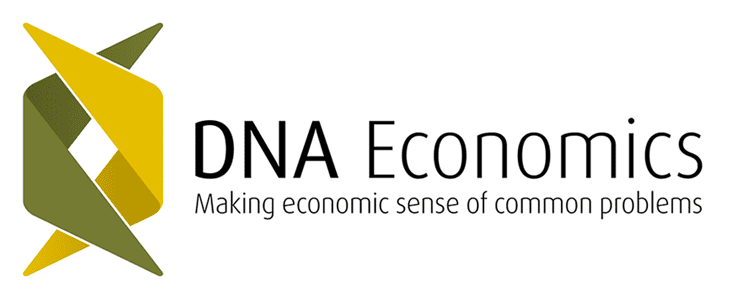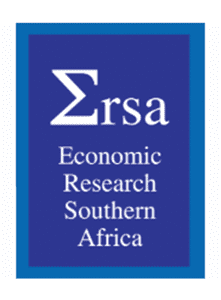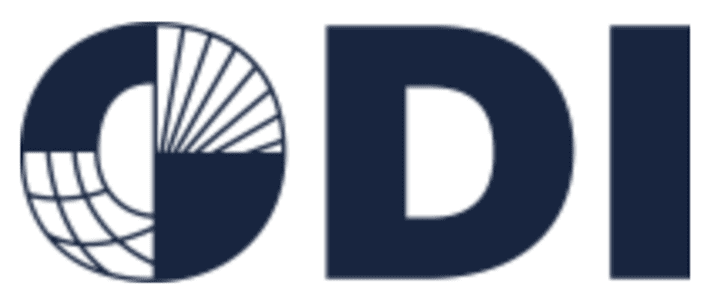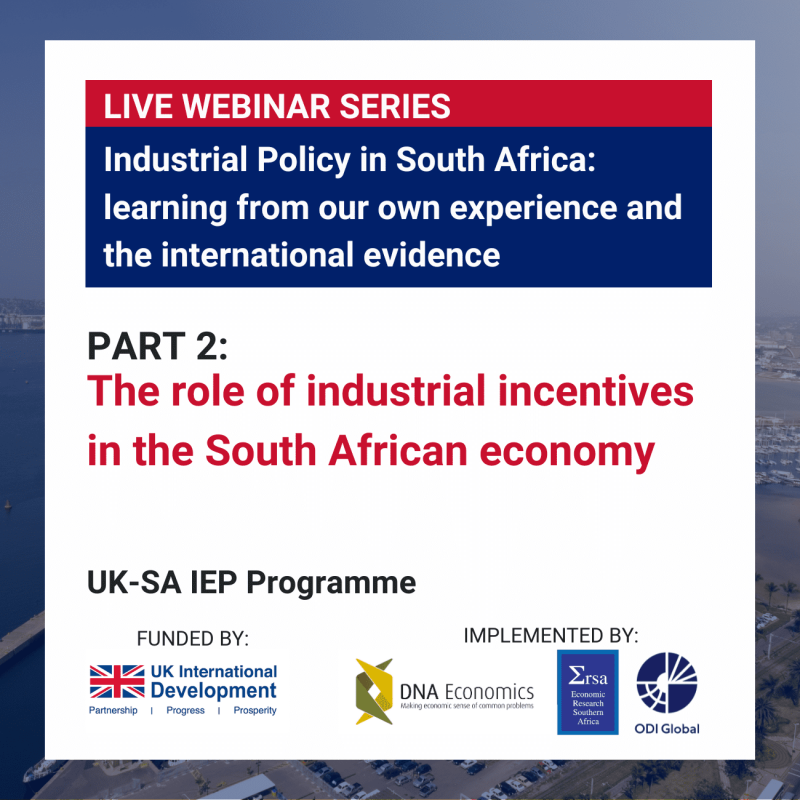Industrial policy is once again central to global debates on economic growth and development. Governments worldwide are deploying new strategies to stay competitive amid geopolitical shifts, climate imperatives and rapid technological change. South Africa is no exception.
The International Economic Partnership (IEP) Programme invites you to join policymakers and experts for a four-part webinar series on industrial policy. The second of these webinars focuses on the Role of Industrial Incentives in the South African Economy. This webinar critically examines the design, effectiveness, and future direction of South Africa’s industrial incentive framework as a driver of development. It explores how incentives can be better targeted, aligned with policy priorities, and made more accountable to deliver measurable impacts on investment, jobs, innovation, competitiveness, and inclusivity.
This webinar brings together policymakers, researchers, and private sector representatives:
- to assess how South Africa’s industrial incentives support investment, job creation, innovation, and inclusive participation
- to create a platform for evidence-based dialogue between policymakers, researchers, and industry stakeholders
- to explore improvements in the design, implementation, and monitoring of incentive programmes to strengthen outcomes
- to identify reforms to enhance coordination, accountability, and fiscal sustainability
- to highlight the importance of equity and inclusivity, ensuring women and historically disadvantaged groups benefit from industrial incentives
Key questions:
- How effective are South Africa’s industrial incentives in driving investment, innovation, and job creation?
- Are current programmes well-targeted and aligned with national priorities?
- How can incentives promote equitable participation for women and historically disadvantaged groups?
- What lessons from international best practice can strengthen design and accountability?
- Which reforms should be prioritised to ensure long-term competitiveness and inclusive growth?
The webinar includes a Keynote Presentation by Matthew Stern (Director at DNA Economics), and is followed by a panel discussion between Andreas Bertoldi, Khulekani Mathe, Annie Sugrue, and Dirk Willem te Velde. Attendee Q&A are included.
Matthew Stern is a Director at DNA Economics and an economist with extensive experience across both the public and private sectors. His consulting and research focuses on trade, industrial policy, and regional integration. This has included multiple projects for the SADC and SACU Secretariats and the African Union Commission, on various aspects of trade facilitation and regional integration; and numerous assessments for business and government departments in South Africa on the impact of trade agreements, tariff adjustments and industrial incentives.
Andreas Bertoldi has over 30 years’ experience in public policy, economic and financial advisory, with a focus on economic development, infrastructure, and urban development in Africa. He has worked extensively on strategy, policy, monitoring and evaluation, project and risk management, feasibility studies, and financial analysis for governments, private sector, and NGOs. His expertise includes capacity building and organisational development, and he has led numerous national evaluations and spending reviews. Recent projects include Johannesburg’s Inner-City Economic Development Roadmap, Rwanda’s Development Finance Strategy, and South Africa’s PPP Framework Review. He holds an MBA (cum laude) and multiple honours degrees.
Khulekani Mathe is the Chief Executive Officer Designate of Business Unity South Africa (BUSA). He previously served as Head of Financial Inclusion at the Banking Association South Africa, where he advanced transformation in banking, small business development, and financial education. He has held senior public service roles, including in the Presidency, the National Planning Commission Secretariat—where he led the development of the National Development Plan—and the Department of Planning, Monitoring and Evaluation. Earlier, he spent 15 years in adult education, winning national and international recognition. He holds master’s degrees in development finance and adult education.
Annie Sugrue is a Director at EcoSasa Developments. Annie is an established leader and innovator across the development sector in sustainable development, green economy, climate change, small business development, women economic empowerment and financial inclusion across a range of sectors. I can combine macro, scientific, business and social approaches in complex programs and projects with an understanding of, and commitment to, real life challenges and offerings across different stakeholder sectors.
Dirk Willem te Velde is a Principal Research Fellow and Director of ODI’s International Economic Development Group, and Professor of Practice at SOAS University of London. He leads major programmes on investment, trade, and economic transformation and has published extensively on these themes. His research has been widely cited in global media, and he has advised governments across Africa, Asia, the Caribbean, as well as donor agencies and international organisations including the World Bank, UN, and European Commission. He holds a PhD from Birkbeck College, University of London.





